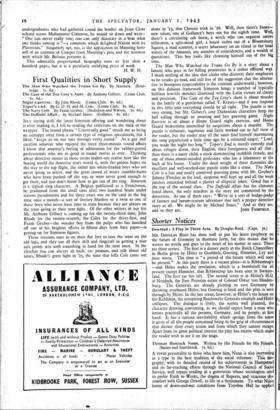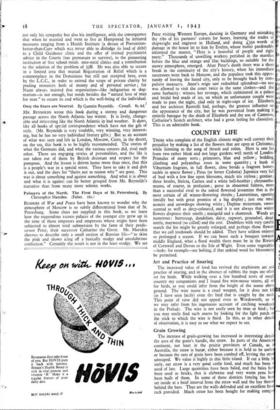A VIVID personality to those who knew him, Nunn is
also interesting as a type in the best tradition of the social reformer. This biography, with its detailed record of his achievement in Hampstead and its far-reaching effects through the National Council of Social Service, well repays reading in a generation whose sociologists tend to prefer Faith to Works, the dogma of Reports, and vicarious discomfort with George Orwell, to life in a Settlement. To what Nunn learnt of down-and-out conditions from Toynbee Hall he applied
not only his sympathy but also his intelligence, with the consequence that when he married and went to live in Hampstead he initiated measures ranging from a Health Institute (a dream of Preventionbetter-than-Cure which was never able to dislodge its load of debt) to a Child Guidance clinic and the offer of trained psychiatrist advice in the Courts (too premature to survive), to the pioneering institution of free school meals. ante-natal clinics and a contribution to the solution of the problem of 33B. He was also able to secure in a limited area that mutual Registration of Relief whichis a commonplace in the Dominions but still not accepted here, even by the L.C.C., in order to extend the scope of private charity by pooling resources both of money and of personal service ; for Nunn always insisted that organisation—like indignation or dogmatism—is not enough, but needs besides the " natural love of man for man " to secure its end which is the well-being of the individual.























 Previous page
Previous page